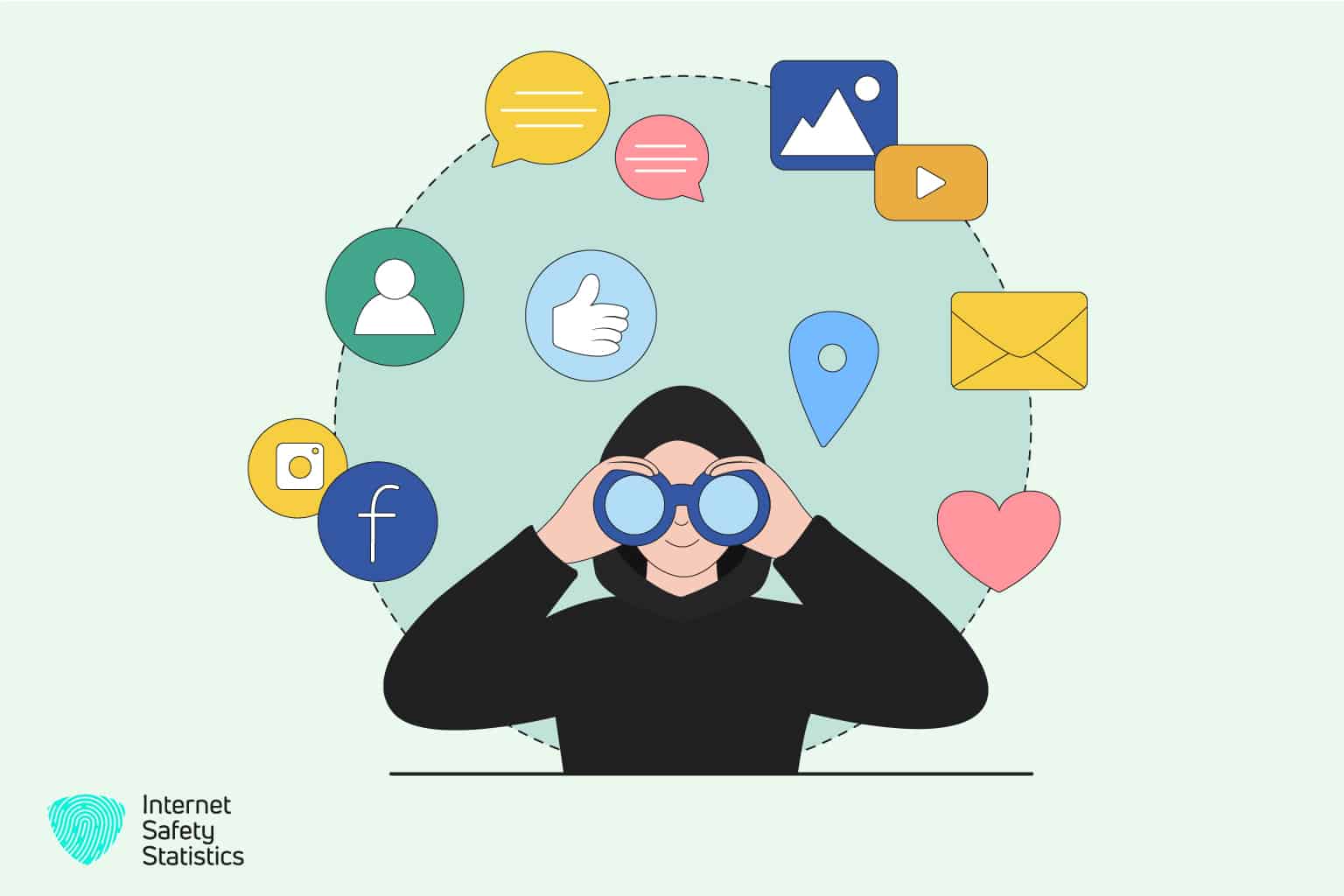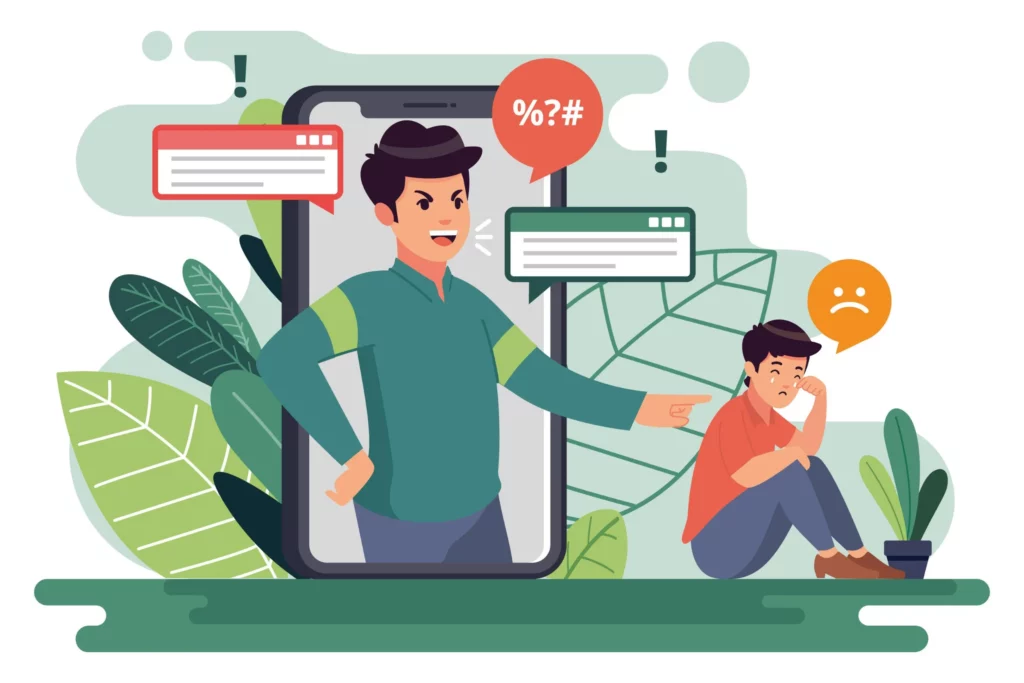
Stalking involves many forms of intimidation and oftentimes leads to violence. Online stalking can be more insidious and make the victim feel like all aspects of life are being tracked. There are many things you can do to deal with this crime.
How to Deal With Online Stalking
- Familiarize yourself with your state’s laws. Many states consider online stalking and cyberbullying a crime. Laws are changing often, so make sure you update your information. Check your state laws here.
- Law enforcement is beefing up its cyber crime units but continues to build its capabilities. In an NCSA/McAfee study, 52 percent of respondents indicated local law enforcement did not do enough to combat cyber crimes. You can do more.
- If the unwanted communication contains a threat of violence, hate crime language, unauthorized photos, sexual photos, sexually explicit messages or child pornography, contact law enforcement immediately.
- Report each incident. Do not push aside stalking situations as being ‘mild’. The police can issue an incident report even if there is not enough to file charges. These incident reports can be useful later if you do need to file charges.
- You may choose to file a restraining order, which may be useful if the perpetrator violates the order. The charges then can escalate from what would have been a misdemeanour to a felony if a restraining order was in place.
- Keep the restraining order with you at all times.
- Link any online stalking to in-person bullying.
- Primary, secondary and university officials should be alerted to any incidents of online stalking. Even if this is not taking place on school grounds, comprehensive anti-bullying policies include off-campus activities. Use these resources.
- All online stalking should be carefully documented. Take screenshots of any online interactions. Keep a log, making note of the Web site on which the stalking is occurring, the date, time, and user names. Take note of the writing pattern and capitalization. Print the screenshot, and save the file. Even if you are unsure if unwanted contact constitutes online stalking, document these suspect interactions. The sooner you start, the better your documentation will be.
- Be clear in your command to a person to cease communication. This command should be firm, and all communication from the victim should stop.
Online Stalking: Strengthen your online privacy

In addition to documenting all online stalker contact with you, there are measures you can take to lock someone out of your online life.
- Change all your passwords. Make these passwords difficult, including numbers symbols and other characters that go beyond the name of your birth city or your first pet.
- Seal off your online profiles. Do not include any information regarding your place of residence, direct email or phone number.
- Keep your email linked to the corporate site on which you network, rather than listing your direct email, which reveals the company where you work. If you list detailed personal information such as the schools you have attended, consider making this information private. A stalker could link or friend someone from your graduating class in order to access your profile.
- Consider keeping certain aspects of your life private. If you decide to divulge private details of your life, check your privacy settings to make sure only desired people can access these details. These privacy settings should be monitored ongoingly to make sure they haven’t changed.
- Make sure you know who you connect with on social networking sites. Sometimes an unknown person could be someone you know, using an alias. Other times it could be a legitimate stranger mining for personal information.
- Check your name on search engines to find out how much of your information is public. You may come across old profiles, resumes, forum posts, organization memberships and photos that you didn’t know existed.
- If you would like to remove existing online information, contact the Website or entity hosting the content. It may or may not be removed, but it is worth trying.
- Usernames should be generic and not include your date of birth, city or full name.
- If you have a blog, allow readers to contact you via an email contact form so that you do not have to publicly list your email address. Also, require users to sign up for an account in order to post or read your blog. If they persist in contacting you, block their IP address using the advanced settings feature.
- Do not post personal details alongside photos. For example, if you post a photo of your workout group at the gym, do not list the name of the gym, as you’ve just given a stalker information as to where and when you workout. They could then narrow in on your home address.
- Avoid checking in to daily locations with location-based services. The function of these services is purely fun but telling people where you are also lets them know your home is sitting empty. You leave yourself vulnerable on all fronts.
- Report all incidents of online stalking to Websites and Web hosts.
- Obtain the stalker’s IP address and block them from posting on your blog, Web site or forums.
- Discuss the stalking issue with your friends. By alerting them, they also can be aware to not discuss your private information with anyone. Oftentimes, online stalkers befriend people you know to mine for more information.
- Contact an online stalker advocacy group. They are an invaluable resource that can help walk you through the process of reporting threatening activities.
Online Stalking: Can be Someone you know
According to the Stalking Resource Center, the average stalking case lasts approximately two years. The earlier the victim tracks the stalking behaviour, the better the case against the stalker.
If you suspect online stalking happening to you from a former friend or romantic interest, or if someone had access to your property, take the following steps.
- Get your computer professionally diagnosed to see if the perpetrator downloaded Spyware onto your computer. This type of software also can be downloaded via email. Get your computer checked out by a professional.
- Ensure the stalker has not had the opportunity to place a Global Positioning System (GPS) on the victim’s cell phone or in the car.
- Consider blocking unwanted or anonymous calls and texts.
- Check out the filtering capabilities on some email programs, which allow you to block emails from certain addresses.
Take back control. Use existing resources – there are plenty of them and they are designed to offer you assistance.
It is essential for parents, teens and educators to learn how to deal with stalkers whether online or in real life. Learning how to deal with stalkers is a necessity not a choice these days.
